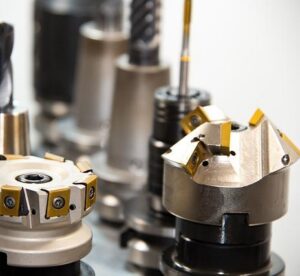Precision engineering is at the core of many UK manufacturing, aerospace, automotive, medical, and defence industries. From high-accuracy machining and micro-manufacturing to custom tooling and tight-tolerance assembly, precision engineering businesses are constantly tasked with delivering products that meet incredibly strict specifications.
However, consistently achieving this level of accuracy and performance is far from routine. Precision engineering projects often involve solving technical uncertainties — whether it’s improving machining techniques, developing specialist tooling, or overcoming material behaviour challenges. These activities can qualify for R&D tax relief if they go beyond known industry solutions to achieve scientific or technological advancements.
Here are some examples of qualifying activities in precision engineering:
Developing New Machining Techniques for Complex Geometries
Engineering bespoke manufacturing methods to achieve tight tolerances on complex or miniature parts where standard machining techniques are not sufficient.
Solving Challenges with Difficult-to-Machine Materials
Developing processes to machine or process materials such as titanium, hardened steels, or advanced composites without compromising tool life, surface finish, or dimensional accuracy.
Improving Surface Finishes or Material Properties
Researching and implementing new methods to achieve high-specification finishes or improved mechanical properties, such as reduced friction or increased fatigue resistance.
Engineering Custom Tooling and Fixtures
Designing and developing specialist tooling, jigs, or fixtures to enable the accurate manufacture or assembly of precision components, particularly when overcoming unique design or space constraints.
Advancing Metrology and Quality Control Systems
Developing or improving measurement systems, automated inspection technologies, or data analysis methods that ensure products consistently meet strict specifications.
Reducing Waste and Improving Process Efficiency
Engineering manufacturing processes that reduce material waste, energy consumption, or cycle times while maintaining or improving quality.
Overcoming Thermal, Mechanical, or Vibrational Stability Challenges
Solving problems related to thermal expansion, mechanical deformation, or vibration control that impact the accuracy or repeatability of precision manufacturing processes.
Meeting Sector-Specific Performance and Certification Requirements
Developing precision components or assemblies that meet UK and international standards for aerospace (e.g., AS9100), medical devices (e.g., ISO 13485), or automotive (e.g., IATF 16949).
If your precision engineering business is tackling these types of technical challenges, you could be eligible for R&D tax relief. This incentive helps UK manufacturers and engineers recover part of their development costs, supporting continued innovation in high-accuracy manufacturing and engineering.




